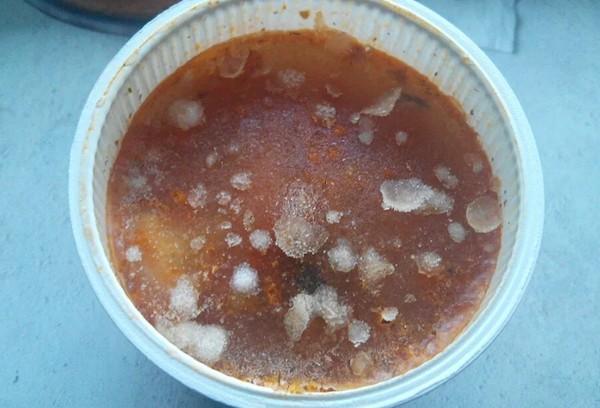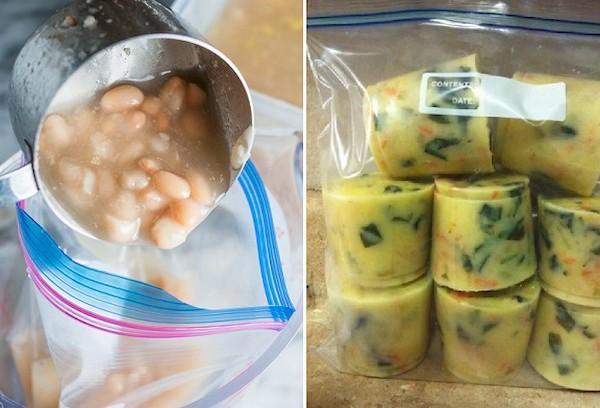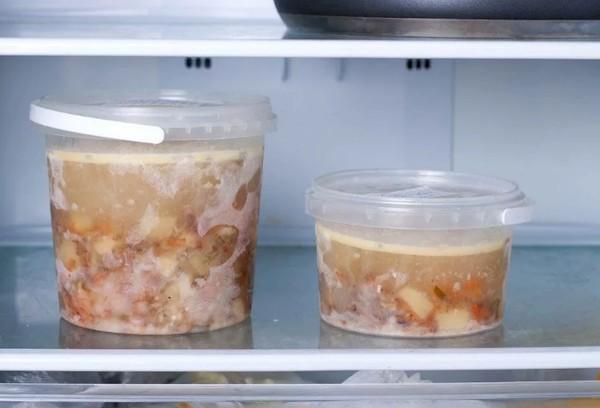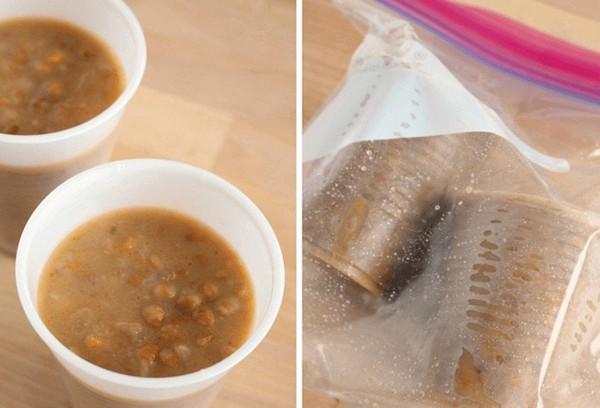Is it possible to freeze soups: secrets, tricks, tips
Freezing entrees seems like a time saver. But whether it is possible to freeze soup so that it does not lose its taste and beneficial properties is another question. The main thing is to choose the right temperature, container, and also choose a recipe that will retain its taste after prolonged exposure to low temperatures.

Is it worth freezing soup - pros and cons
Lack of time pushes us to make homemade semi-finished products. Everyone is used to freezing cutlets and meat, but freezing first courses is not so popular.
Pros of freezing:
- long-term storage;
- creating a stock of home-made semi-finished products;
- saving time.
The disadvantages include the risk of losing taste. But small secrets will help level out the shortcomings. Also, the disadvantages include the storage method. Containers with soup can take up a lot of space, but they are designed for 1-2 servings.
How to freeze soup
Having figured out whether it is possible to freeze soup in the freezer, you can approach the process itself. After the first dish is cooked and completely cooled, it is poured into portions and then put in the freezer.
Some tips:
- Creation of reserves. They cook the soups several times, eat half of them, and freeze the other half. Gradually, a stock of several options accumulates, which can be taken out and eaten at any time.
- Selection of container. It is better to freeze in portions, counting on 1-2 servings. Keep in mind that when frozen, liquid increases in volume.Preference is given to plastic. Tempered glass can be used.
- Preservation of taste. When quickly frozen, the dish practically does not lose its quality. But if the process takes time, then loss of up to 30% of the original taste is possible. Therefore, when defrosting, add salt, fresh herbs, and lemon juice.
You should not freeze dishes with a lot of potatoes, as they do not tolerate long-term freezing. It is more convenient to use mashed potatoes, or add no more than 3 or 4 pieces. Be sure to attach a label, because after freezing it is difficult to determine the type of soup that is in the container.
Best before date
The shelf life directly depends on the type of dish. Fish-based broth retains its quality for no more than 3 days. Broth and thick soup can be stored for up to 5 days. If you have a special freezer, you can freeze it for 3 months, and lean broth for up to 5 or 6 months.
Advice! It is worth freezing in small portions. Preferably 200-400 ml.
To extend the shelf life of frozen food, you need to resort to tricks. So you should not use glass containers; preference is given to sealed plastic. It is better to use a container that will continue to be used during heating. If the soup has already been taken out and heated once after freezing, then it cannot be re-frozen.
How to defrost soup
Proper defrosting will preserve the taste. Therefore, the container is taken out in advance so that it thaws near the walls. The contents of the container are transferred to a saucepan and heated over low heat. It is not necessary to boil, just warm it up to a comfortable temperature.
Advice! A microwave oven with an accelerated defrosting function will help you quickly reach the desired temperature, but the taste of the soup will be significantly lost.
You can add fresh herbs, a little lemon juice, and salt to the defrosted first course. Finely chopped garlic and bell pepper are added to the borscht for flavor. When heating in a pan, you can add bay leaf and dried herbs.
You can freeze the soup in the freezer! This is a real lifesaver for those who don’t have enough time to cook every day. You can create a stock of different soups and not be afraid that some of what you cook will go to waste. To ensure that the dish does not lose quality, it is necessary to properly freeze, defrost, and use simple tricks.



